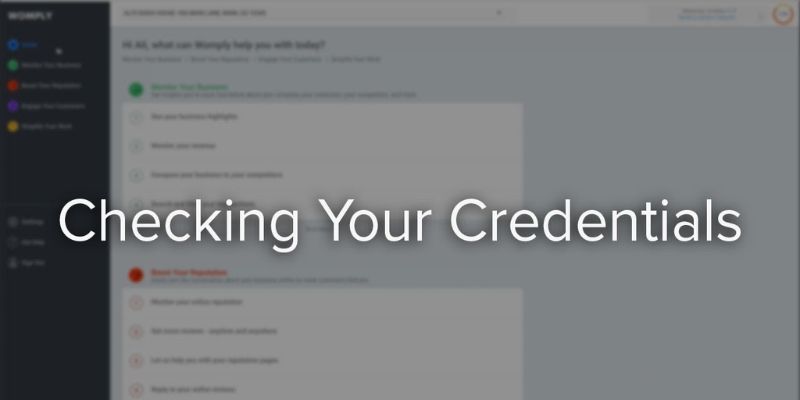With seao.info below to learn more about How to choose a financial advisor. A robo-advisor could be a suitable choice if you’re seeking for the essentials, such as someone to invest your money, make wise judgments, and create a financial plan. Based on your objectives and level of risk tolerance, a top robo-advisor like Betterment or Wealthfront may assist you in doing all of these tasks while also charging you a reasonable fee. It’s easy to get started online and great for developing a portfolio.
However, you’ll need a human adviser if you’re searching for more sophisticated counsel, such for estate planning. Here are some things to consider when selecting a human financial adviser, reasons why you need a fiduciary, and qualities you should demand in order to discover the best fit for your needs.
How to spot a good financial advisor
One of the ways to relieve stress is to find the right financial advisor. But giving someone access to one of those private jobs is extremely difficult. Here are six perfect suggestions to help you how to choose a financial advisor.

1. Find a real fiduciary – How to choose a financial advisor
As to who qualifies as a trustee, the law is not clear. Many advisories have been requested in your “best interests”, but that is not enforceable, except in the most severe cases. You must locate a true fiduciary. How to choose a financial advisor?.
Slott advises clients to take the time to check if advisors have funding. On continuing tax planning training for retirement savings vehicles like 401(k) accounts and IRAs. These are intricate accounts, and regulations frequently change, as shown with the SECURE Act 2.0 that was approved at the end of 2022.
“Don’t completely trust any advisor with your investment who doesn’t have benefits for their education. According to Slott, you must come first. Find a real fiduciary – How to choose a financial advisor
2. Check those credentials
Check those credentials is the way how to choose a financial advisor. Potential clients should look for well-known designations in addition to viewing financial advisor credentials. Examples how to choose a financial advisorinclude Certified Financial Analyst (CFA), Certified Financial Planner (CFP). These designations will impose fiduciary duties on their holders.
According to Robert Johnson, professor of finance at Creighton University, “these people have mastered a complex body of knowledge, have passed a comprehensive examination and agree to abide by a code of ethics.”
Johnson cites the CFA code as encouraging “to act in the customer’s interest, and above all, to put the customer’s interests above the interests of the employer, their own interests.”
You may look up an adviser’s credentials on the websites of the CFA Institute and the CFP Board. Even while these qualifications don’t ensure that someone is truly working for you, they do demonstrate a certain level of expertise, which is crucial.

3. Understand how the advisor gets paid
Some salespeople appear as advisors, especially those employed by businesses like insurance companies or fund management firms where client assistance is not the main line of business. The adviser will typically just make an effort to sell you the company’s products and services in these circumstances.
Even though you could have a higher chance of receiving unbiased advice from an impartial counselor, you should use cautious. Even independent consultants can work as salespeople for an organization.
Brian Walsh, CFP, senior manager of financial planning at personal finance company SoFi, suggests that you ask the following questions: Do they get paid when people buy insurance? They are paid commissions on stock exchanges, right? Do they have a connection to a business that offers specialized goods?
So, if you’re around a counselor you’re not paying for, proceed with utmost caution.As the proverb says, “He who’ll pays the piper calls the tune.”. how to choose a financial advisor for you.
4. Look for fee-only advisors – How to choose a financial advisor
How to choose a financial advisor?. Find an advisor that works for you and other clients like you for exclusive pay. This is the most obvious solution to avoid conflicts of interest in the financial sector. Of course, this means you have to pay from your own wallet, maybe you will earn money.
The problem is that many financial “solutions” such as annuities sometimes have a sales fee included in what is supposed to be substantial expense. When you buy such things, you are paying for the item a hefty price tag on the advice of a dubious seller, the price of which is often hidden. In the end, guidance will cost you much more than hiring a fee-only advisor.
Another tactic is to bill clients on an hourly basis. Higher-net-worth clients may profit from this arrangement since they just pay once for counsel rather than based on how much money they have.
If you continue to engage with a fee-only fiduciary advisor, you are playing both the piper and the conductor. Once a year after your initial consultation with one of these advisers, you can go back for a review and have the adviser revise your plan if your financial situation or personal situation change.
5. Search for clarity
Any legal representative you work with need to be able to fully and understandably explain everything. If an advisor makes you feel foolish or incompetent for asking questions, just go. Long-term partnerships should not be attempted with such a person.
You should quit if your adviser does any of these things without being able to explain why. You can’t have the adviser cease engaging in these transactions if you didn’t authorize them and the rationale provided to you isn’t enough. You need to look for a new better advisor.
Many financial advisors make money by concealing their behavior. Make sure your advisor is being paid and that they are both aware of it.

6. Find mentor to help you stay on the right track
Many consumers underestimate the importance of a financial advisor’s ability to listen, but there are other ways the advisor could finally address the client’s particular goals and position. A competent counsel won’t only provide you guidance; they’ll also keep you inspired.
The adviser could occasionally need to comfort you if the stock market or perhaps your life has been exceptionally stressful or exciting. In the end, the advisor’s role is to keep you on track to reach your goals, which occasionally calls for taking on the role of a psychologist.
Sue Christoph of RMB Capital, Chicago says .”When the market is volatile, an advisor should be a voice of reason, a clear mind to help you avoid costly mistakes,” You will no longer wonder about how to choose a financial advisor.
Hopefully, through the topic How to choose a financial advisor shared by seao.info, you will accumulate useful information!


